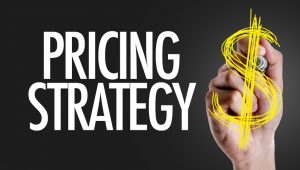— August 2, 2018
Reputation management services are usually purchased by businesses — businesses with money to spend and Yelp ratings to repair. Although there are some exciting dustups in the world of corporate reputation management, when it comes to individual reputation things can get… personal. Here’s a guide on how to do personal reputation management, tips, tricks, and checklists.
We all love a good fall from grace story (unless it’s happening to us), a red hot gossip drop, or a celebrity rumor. And when personal reputations start blowing up like Philadelphia on the 4th of July, we are tapping and swiping our devices to get the latest, juicy tell-all details.
There’s a reason why the National Enquirer, The Sun, Daily Star, and US Weekly publish content that is all about scandalous behavior.
You may not end up on the cover of US Weekly, but you nonetheless have a reputation. And that reputation needs to be managed.
The article you’re reading now is a field guide for managing the labyrinthine complexity of personal reputation in today’s reputation-centric culture. Everyone possesses a reputation. And therefore, everyone has the responsibility for managing that reputation.
Why Personal Reputation Matters
Personal reputation management: it’s not just for celebs
When most people hear the term personal reputation management, the first thing they think of might be a politician embroiled in a controversial web of rumors, wiretapping, and wild speculation. Or they might think of a celebrity whose reputation is being picked apart by salacious tabloid headlines and blurry long-distance photographs from snooping paparazzi. Celebrity reputations get a lot of press, obviously.

And corporate mogul busts are the stuff of legends.

But in truth, everyone has a reputation, be it big or small. And each person’s reputation matters in his or her sphere of influence, no matter how vast or minuscule that sphere may be. Our world runs on the energy of social interaction and the medium of social media networks. Because of this, the image of an individual has reached a scale that no other generation has had to grapple with.
Today, reputation issues can linger forever in the electronic ether, can explode virally to an audience of millions, and can plunge someone from public applause to public approbation in the space of a few of hours.
It’s not just celebrities who need personal reputation management. Everyone, to some degree or another, needs to pay attention to the management and maintenance of their online brand. A personal reputation can mean the difference between securing a job or being blacklisted by corporate recruiters. Personal reputation may put your name at the top of the list for HOA presidential candidates, or may cause neighborhood moms to scramble when you show up at the playground.
Personal reputation: A parallel
One helpful way to think of personal reputation management is to consider the parallel of personal hygiene. Most people choose to brush their teeth regularly, take a shower, tend to their nails and hair, and mask body odor. It’s the socially acceptable thing to do.
Whose responsibility is personal hygiene? Personal hygiene is an individual responsibility. There are, of course, people whose age or infirmity prevent them from bathing themselves or attending to their grooming. But most people who have good health and a sound mind will take care of these tasks themselves.
Does it take some time and money? Sure, but most of us believe that personal hygiene is time and money well spent.
But what if you just don’t? What if you stop showering, shaving, combing hair, trimming nails, controlling body odor, watching your diet, and dressing appropriately?
The consequences will probably come in the form of social exclusion. You may be ridiculed, avoided, censured, rebuked, and ostracized if you neglect personal hygiene.
This parallels personal reputation management. Although the consequences may not be odoriferous they can be just as dire. Everyone has a responsibility to tend to their own reputation, and once you neglect it, life begins to unravel.
Consequences of neglect
What kind of “unravel?” It all depends on your life context, but several broad consequences apply. If you neglect your reputation, it is by default manage by the vagaries of chance, the nefarious intentions of others, or a slow demise into obscurity.
Just as no one else is going to brush your teeth for you, few are going to shape your identity in a good way or attempt to control the perceptions of others positively. Those who neglect their reputation wind up being passed over for jobs or promotions, rejected by romantic partners or friends, and suffer from what seems to be bad luck.
In sounds harsh, but socially, there is no excuse for the neglect of one’s personal online “brand”. If these consequences aren’t intense enough to encourage personal reputation management, then perhaps the benefits are.
Benefits of personal reputation management
At the risk of overstating the case, no one becomes successful without personal reputation management. Once you proactively manage your reputation, life opens the doors of opportunity to you.
Here are some of those benefits.
- You define your life. Personal reputation management is a lot like creating a business brand. What’s your “product,” or what do you want to be recognized for? Who is your “target customer,” or,what kind of people do you want to be surrounded by? Although most contemporary cultures continue to be vexed by systemic injustice and broken economic or political structures, you nonetheless possess the tools to define your life in a way that you deem appropriate and suitable. Just like you get to define your personal style — combed hair, nice smell, fashionable attire — you also get to define your personal brand and reputation.
- Success begets success. Once people perceive you in a certain way, then reality takes the form of those perceptions. This isn’t voodoo. It’s science. For example, if you amble into a local bank looking like a tramp and asking for a business loan, you may not get a loan, no matter how many of the right boxes you tick on your application.
If, by contrast, you stroll confidently in wearing a tailored suit, sporting a fresh haircut, and manifesting an air of absolute self-possession, you might get the loan even if your application doesn’t score 100%.
- Security. When you manage your personal reputation, your reputation takes care of you. A reputation gives you a job, a partner, friends, a social safety net, financial means — virtually everything that most people consider to be marks of success. Once this happens, you enter an arena of social and financial safety.
- Upward mobility. An outstanding reputation puts you in touch with the people and places that are closed off to those who have no reputation or who have a negative reputation. Through a great reputation, you gain social access to people who have power, influence, and more.
What do you want in life? Whatever it is, your personal reputation will deliver it. But first, you need to understand how to manage it.
How to Manage Your Reputation
Some people tend to think that personal reputation management requires something like this.

Somehow, the amalgam of several three-syllable words conjures up images of coders, hackers, data scientists, deep web experts, AI programmers, several layers of managers, and people to watch stuff on screens. Truth be told, this is all you need — cheesy stock photo not included.

Required resources for personal reputation management
Here’s everything you need to manage your personal reputation if you don’t already have a problem.
- A way to get online. I recommend that you own a computer or tablet, but if the only Internet you can access is your local library, you can even go with that.
- A phone number. Many social networks require you to enter a phone number for two-step verification. It’s not always required, but it’s strongly recommended.
- An email address – I recommend Gmail for reasons explained obvious below.
- Optional: $ 10-50 to spend on purchasing a domain.
Now, here’s what to do with each of your resources.
Reputation real estate: Claim your space
Your first order of business is to get social media accounts on each of the major social media networks. You may already have a presence on social media, but let’s make sure we’re not missing any steps.
What social media sites should you be on?
I’m going to make a significant claim here, but I recommend that you claim your username and profile on all the major social media sites.
- LinkedIn – This is your online resume. Recruiters, colleagues, and hiring managers show up here on the regular to polish their presence (and to check up on yours).
- Facebook – If you don’t exist on Facebook, you simply don’t exist to some people. It’s life. Besides, Messenger, Facebook’s messaging platform, is set to outpace email as the global preferred form of communication.
- Twitter – You may not use it, but you should claim your name on it.
- Instagram – It doesn’t matter if you fit the millennial demographic or not. Just go secure your username, and post a profile pic. That’s all you need for now.
- Snapchat – Humans born after 1980 seem to have an inherent inability to “figure out Snapchat” but it’s relatively simple to get an account.
- Pinterest – It can be surprisingly useful.
- Google+ and YouTube – These are both Google properties, so if you have a Google or Gmail login, you’re set. If you don’t have a Gmail address, you really should get one.
- Highly recommended – Purchase your domain name. Owning your own domain name with your name or some equivalent may not seem important right now, but you never know when it could be. Use a domain name search like GoDaddy to see if your name is available as a dot com domain. Find and purchase the domain name that matches your name as closely as possible.
What name should you use on your social profiles?
I recommend that you use the name you think people will Google you for most often. Some people choose a screen name or false name – don’t. Because if you do, you will be relying on Google to figure out that your name, and your online name, are the same.
Note: If you are supervising a child’s foray into social media, we recommend not using their legal name until they become an adult… or in some cases until they start acting like an adult.
Here are some bonus tips regarding the name on your social media profile. Not all social media accounts are the same, so not all these tips will apply.
- Your name, your social media account. Some married couples choose to create joint social media accounts — a blended name for a single account they both can use. This is highly confusing and not recommended.
- If your username is claimed, try these alternatives:
- Add your middle initial. E.g., JohnASmith
- Add your middle name. E.g., JohnAdamSmith
- Use initials for your first and middle name. E.g. JASmith
- Shorten your last name: JohnAdamSm.
- Use dashes between your names (if allowed) – John-Smith
- Add “The Real” before your name – TheRealJohnSmith
- Add “Official” somewhere in your name – JohnSmithOfficial
- Try not to use numbers – Nothing is less memorable and more annoying than appending a sequence of numbers to your name or username. Although you may have a lucky number or a past jersey number, don’t use it on your social profiles. JohnAdam008710 is not recommended.
What about profile photos?
Social media profile photos are of utmost importance. They establish you as an actual human being (as opposed to a bot) and speak volumes as to your reputation. You can bend some of the following rules, especially if you’re given to regularly changing up your Facebook profile pic, but for the most part, these guidelines should apply:
- Use one. Nothing screams “I’m a bot” louder than a social media profile with no actual photo. While we’re on the subject, children, pets, cars, and your beautiful petunias do not qualify as a photo of you.
- Take your profile photo seriously. Don’t just take a selfie lying in bed. Use a professional headshot if you have one. If you don’t, you may wish to invest the $ 100-$ 200 to get one.
- Use a recent photo. You may have been a more attractive 19-year old, but you’re 42 now. Get a photo that matches your present appearance.
- Don’t wear sunglasses. You may look cooler, but we can’t see your eyes. Take them off.
- Smile. Exceptions apply for serial killers.
- Use the same photo across all profiles. If you’re going to set-it-and-forget it on social media (e.g., maybe you’re just not into Pinterest), that’s fine. But you should use the same photo for Twitter and Instagram, too, provided you’re not as active on those profiles. Using the same photo isn’t required, of course, but it does lend an air of uniformity and recognizability to your social media presence.
- Blurry, cropped, group, and pixelated photos are unacceptable. Your profile photo should be only your face and should be clearly your face.
Be aware of doppelgängers.
A doppelgänger is a “non-biologically related look-alike or double of a living person” (source). In terms of personal reputation management, a doppelgänger could be your demise.
Let’s say your name is Herbert Miggleton (not intended to portray a real person). You’re a mid-level management at The ABC Company, and a decent guy. But, unbeknownst to you, there’s also a Herbert Miggleton, about your age and appearance. He, tragically, is an axe murderer. This, by the way, has happened to some of our clients.
Unless you’re aware of your personal reputation and any doppelgängers, this random similarity of names and identities could be a startling way to jeopardize your marriage potential and job opportunities. Besides, it also creates some barriers to having a presence on major social media sites.
If your alter ego Herbert Miggleton got to Instagram before you, then you’ll have to choose an alternate username from HerbertMiggleton, and post something other than pictures of axes and axe sharpeners.
Reputation activity: Be present
The visibility of your personal brand online depends on how present you are on social media and what you’re saying, doing, or posting. You will need to choose how present you want to be. Some people may choose to post to Facebook publicly all day long. Others will drop a post every week or two. Some people are always on LinkedIn, and others are more active on Instagram.
Here are three points of observation and recommendation as you manage your reputation by being present on social media.
Check into your privacy settings
If you’re opting for low visibility on social media, batten down the hatches on your social media accounts. Monitor incoming friend or follow requests, and control the visibility of information.
Choose how present you want to be.
More present means more management, which means more risk, which means more time. Different goals call for different levels of activity. For example, if you’re in the job market, amping up your LinkedIn activity might be called for. Hiding or deleting old or somewhat objectionable posts would also be prudent.
Select the sites where you want to be more active.
Unless you have scads of time or a team of assistants, it can be difficult to be highly active on all social media accounts. Choose the ones that are most important to you and your goals and invest your time there.
Reputation perils: Beware the risks
Individual reputation monitoring and improvement is necessary, but it’s also attended by some very real risks. The “management” side of personal reputation can be boiled down to a few salient points. Control yourself and clean up the past.
Control yourself
The short history of social media is littered with the charred remains of people who publicly disemboweled their reputation on social media. Whether it was a string of expletives on Twitter, an affair that went public, photos of a drunken escapade, or a smoldering public rant to one’s boss, things can go south fast on social media.
Try to set some rules for yourself. First off, control your privacy settings if you question your ability to keep your mouth shut when appropriate. And pledge to yourself not to touch your phone after the third glass of wine. Whatever it takes, your reputation is worth the gritting pain of phone withdrawal.
Clean up the past
In The Wall Street Journal interview with Eric Schmidt, the paper explained that Schmidt “predicts, apparently seriously, that every young person one day will be entitled automatically to change his or her name on reaching adulthood in order to disown youthful hijinks stored on their friends’ social media sites.”
Unfortunately, social media isn’t as forgiving as Schmidt wishes it were. Everyone but me has done things they’re not proud of :-). For some of us, those “unproud” moments live on as Facebook photos. Do what you can to get those photos gone. Plead with your friends, untag yourself, or otherwise give revisionist history a try.
Although Schmidt later mentioned it was a joke, he also admitted, “It just wasn’t a very good joke.” We may decry the erosion privacy that Google and Facebook have contributed to, but we also have to agree with another quote by Eric Schmidt: “”If you have something that you don’t want anyone to know, maybe you shouldn’t be doing it in the first place.”
Conclusion
Personal reputation is the responsibility of every adult human living in an industrialized society. But it’s also a true privilege. Done correctly, personal reputation management gives you power, opportunity, and places to go.
Managing your reputation doesn’t need to be painful or time-consuming. It’s the simple practice of claiming your space, being present, and staying aware.
Business & Finance Articles on Business 2 Community
(40)






